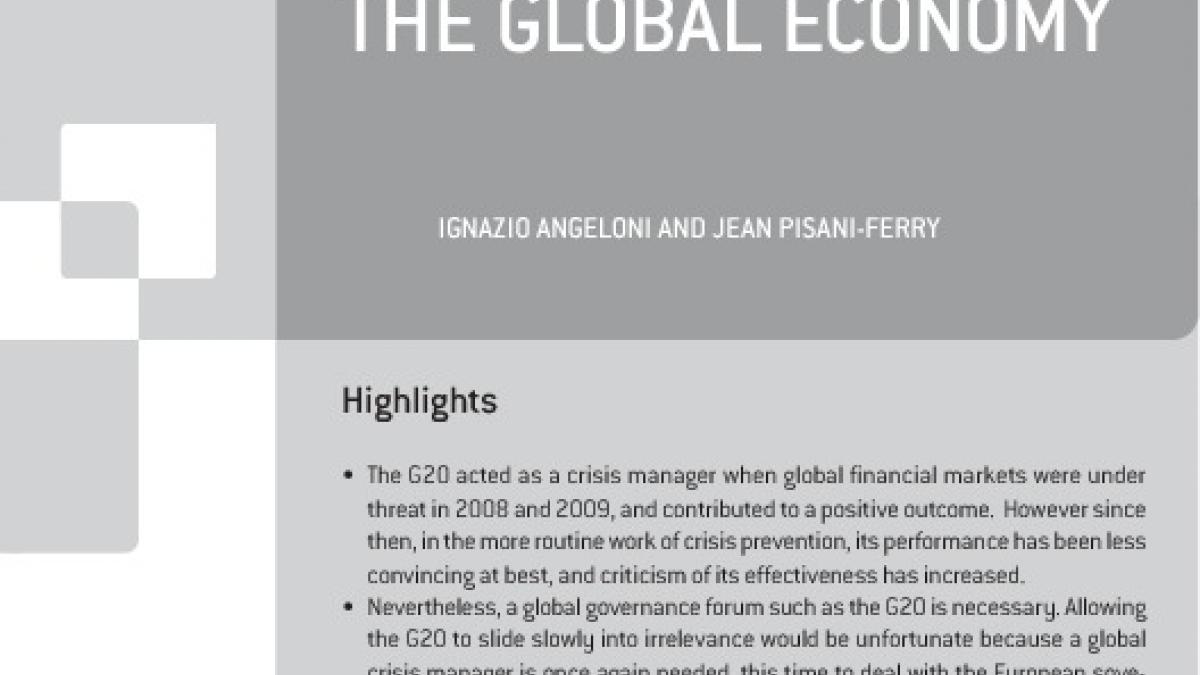Wanted: a stronger and better G20 for the global economy
Ahead of the G-20 summit in Cannes of 3-4 November, this policy contribution by Jean Pisani-Ferry and Ignazio Angeloni outline a set of priorities t

The G20 acted as a crisis manager when global financial markets were under threat in 2008 and 2009, and contributed to a positive outcome. However since then, in the more routine work of crisis prevention, its performance has been less convincing at best, and criticism of its effectiveness has increased.
Nevertheless, a global governance forum such as the G20 is necessary. Allowing the G20 to slide slowly into irrelevance would be unfortunate because a global crisis manager is once again needed, this time to deal with the European sovereign-debt crisis
The first priority is to promptly finalise the macro-coordination framework still under construction, and strengthen it by bringing intra-regional imbalances explicitly to the fore. These should be treated as global imbalances under G20 responsibility if they have global implications, as the euro crisis certainly does.
Second, decisions should be taken on how the emerging country bloc represented in the G20 could contribute to provide financial-market support in conditions of stress. The 3-4 November Cannes G20 summit is an opportunity to strengthen the G20’s role.
This paper is a contribution to a Think Tank 20 volume to be published by The Brookings Institution.



